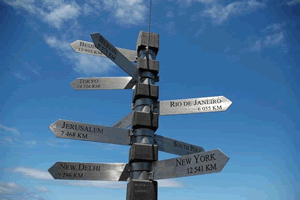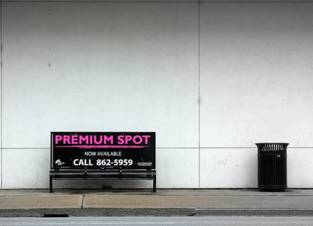National location
The choice of location is probably the single largest expense when setting up a new business. It is likely to have a significant impact on the number of customers a firm attracts, its sales revenues and, consequently, its profit levels. Choosing a location is investment in the same way as purchasing equipment and machinery and other fixed assets. Investment appraisal tools such as payback, ARR and discounted cash flow should be applied where appropriate and expenses on purchasing or renting property should be incorporated into break-even analysis.
It is likely to have a significant impact on the number of customers a firm attracts, its sales revenues and, consequently, its profit levels. Choosing a location is investment in the same way as purchasing equipment and machinery and other fixed assets. Investment appraisal tools such as payback, ARR and discounted cash flow should be applied where appropriate and expenses on purchasing or renting property should be incorporated into break-even analysis.
Other quantitative business tools, such as decision trees and contribution costing may also be part of the location decision-making process. However, these will only be aids to decision making, and the firm will also have to consider a range of non-quantifiable (qualitative) factors, including employee motivation, company objectives, ethics and corporate image.
Location, Location, Location
Why do firms choose to locate where they do? Although, there is rarely a single answer because different firms choose their locations for different reasons, one of the major determinants of a location decision relates to the firm's factors of production. In general, economic theory states that firms locate where they can reduce the costs of their factors of production and where they have access to inputs that meet their quality standards at a relatively low cost. However, because firms are different, the relative importance of different factors of production varies both across industry and even more importantly, across the type of firm. For example, a firm that spends a large proportion of its total costs on labour will be attracted to a location where labour is relatively inexpensive, whereas a firm requiring a significant location space may give more weight to areas where rental values are relatively cheap.
 However, the mantra of real estate agents is that the crucial aspect of any property decision is 'location, location and location'. Buildings can be updated, redeveloped or improved, but the location itself cannot be changed. Naturally, the price of land varies according to its desirability; with supply and demand operating to establish price. A location will be relatively cheap when it is less sought after; retail locations with the highest footfall and business offices in 'high class' areas, attract the highest prices. A small retailer may wish to locate in the central shopping mall, but lacks the funds to pay the high rents, so must compromise and accept a less than perfect location that is, however, affordable.
However, the mantra of real estate agents is that the crucial aspect of any property decision is 'location, location and location'. Buildings can be updated, redeveloped or improved, but the location itself cannot be changed. Naturally, the price of land varies according to its desirability; with supply and demand operating to establish price. A location will be relatively cheap when it is less sought after; retail locations with the highest footfall and business offices in 'high class' areas, attract the highest prices. A small retailer may wish to locate in the central shopping mall, but lacks the funds to pay the high rents, so must compromise and accept a less than perfect location that is, however, affordable.
When reflecting on business location, it is important to remember that there is no one place that is perfect for all firms. Each location has its strengths and weaknesses. Some places have exceptional attractions, while others have may have both positive and negative aspects. Nevertheless, selecting the best spot for a particular firm is invariably something of a balancing act between the benefits of a particular location and its costs.
